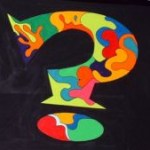Publishing
And why we should care. Gary Price of the Resource Shelf pointed to a news story today, that Ebsco has acquired two more research databases: Criminal Justice Abstracts and Communications Abstracts. For those of you who haven't been following, Ebsco has recently acquired Ageline (it is now not available for free), NetLibrary, research databases from OCLC, The Music Index Online, World Textiles, ExPub (ChemExpert)... oh and exclusive rights to some magazines.
What we can expect from this is that those other databases will no longer be available on multiple platforms. Folks who aren't librarians…
And why we should care. Gary Price of the Resource Shelf pointed to a news story today, that Ebsco has acquired two more research databases: Criminal Justice Abstracts and Communications Abstracts. For those of you who haven't been following, Ebsco has recently acquired Ageline (it is now not available for free), NetLibrary, research databases from OCLC, The Music Index Online, World Textiles, ExPub (ChemExpert)... oh and exclusive rights to some magazines.
What we can expect from this is that those other databases will no longer be available on multiple platforms. Folks who aren't librarians…
At ScienceBlogs we value our independence. Just consider the recent posts over the laughable PepsiCo nutrition blog to see how seriously people take this. But one thing that would never happen is for anything we write to be edited without our consent.
As I wrote yesterday, I am disappointed in the Huffington Post's decision to grant a public stage to David Klinghoffer, Senior Fellow at the intelligent design "think tank" known as the Discovery Institute. DI is a self-avowed propaganda vehicle seeking to "wedge" religion into public schools. Once HuffPo handed him the megaphone…
I've been working for a while to develop a Frequently Asked Questions page to answers the most common reader questions about The Immortal Life of Henrietta Lacks. Well, it's now online, and it addresses questions ranging from why HeLa cells are immortal to how the Lacks family is benefiting from the book. It also includes answers to commonly asked publishing questions, like, How do I break into science writing? You can read it online here. If you have burning questions not answered there, leave them in the comments section below -- I'll add to the FAQ as questions arise and…
Others have commented on this ridiculous Chronicle of Higher Education article about the "avalanche" of publishing (seriously, how hard is it to use Web of Science or PubMed?), but I wanted to address the authors' three suggestions. First:
First, limit the number of papers to the best three, four, or five that a job or promotion candidate can submit. That would encourage more comprehensive and focused publishing.
This completely ignores the reality that publications have purposes other than tenure, namely grants. To get research funding, one typically has to show that one has done some work…
By now, you might have heard about the kerfuffle between Nature publishing and the University of California (also here, here, here, and here). Basically, the University of California has accused Nature of raising its prices for institutional journal subscriptions by 400%; the university system, which has significant purchasing power, has threatened a boycott that would not only forbid purchasing their journals, but would also forbid publishing and reviewing for Nature.
What's weird about this is that Nature doesn't seem to realize how precarious its business model is--I think if it takes on…
Besides watching this like the finals of Olympic hockey, I've been seriously impressed with the thoughtful and insightful commentary from a huge bunch of my libr* online contacts. Interesting stuff, too, from scientists and other folks interested in scholarly communication.
About the confidentiality of the discussions....
Walt Crawford reminds us of various freedom of information requests and state laws in California that essentially mean that the terms of the final agreement won't be confidential
Beth Brown thinks that this can only help with transparency in the future - which would be a…
Read this (pdf). So the UC system has been screaming - they are totally cutting budgets, people, everything... And NPG has decided to hike their subscription renewal prices by 400%. So if the offer doesn't change, UC's going to fight back, and it will hurt. Boy, will it hurt.
Over the last couple of weeks, I've been catching up on my science reading, and that's reminded me just how much I hate it when journal articles refer to supplemental materials. I'm not bothered when tables that used to go in what we old-timers once called appendices wind up in supplemental materials: very few people want to read the descriptions of 2,000 bacterial strains, for instance.
But that's not what most supplemental materials are, or how they arose (we'll get to that in a bit). Not only is it a hassle to download an article, only to realize that there's a supplement you need and…
As an academic researcher I don't write grant proposals for a living, although sometimes it feels like I do. I need grants to do my work, but I also need to get to work and I don't consider myself to be commuting for a living. Although sometimes it feels like I do. Having said that, low on my list of favorite things would be anything that required even more compliance paperwork for a grant proposal, but the National Science Foundation (NSF) is now about to spell out a new compliance paperwork requirement, and frankly I approve of it. In principle, at least, although I won't like doing it if…
I â¥â¥â¥ this essay by Barbara Fister: Washington, We Have a Problem at Library Journal.
Go read it.
A few calendar notes: I've got a three-day run starting next Sunday in which I'll be talking to authors and journalists about book proposals; NY science writers about the future of social media; and to genomic geeks about genes and temperament. If you've questions you'd like raised at any of these, please shoot me a note in the comments or privately at david.a.dobbs [at] gmail.com.
This Sunday morning, April 25, I'll be on a panel at the American Society of Journalists and Authors annual conference in New York discussing, along with agents Michelle Brower and Chris Parris-Lamb and GP Putnam…
Since 2006, Bora Zivkovic of A Blog Around the Clock has been in charge The Open Laboratory, a series of collections of -- as the subtitle says - the best science writing on blogs. The "open" in this case is not only about exposing the inner workings of science, but the democratic and transparent process by which the entries are created and selected. At the helm of each edition is a rotating editor; our own Scicurious was in charge of last year's. And a little more than a month after Open Lab 2009 hit the virtual bookshelves, the process begun anew for 2010. Bora has just announced that this…
I expect D to have a more thorough take (she always does!), but there's finally a more widespread outcry against Ebsco. A few of us commented about the exclusive rights to magazines and closing access to Ageline. There was also (rightfully) a kerfuffle about deep linking to HBS articles.
Now we hear from Meredith Farkas about exclusive access to military history journals and a more general piece by Sarah Houghton-Jan.
When I've posted something negative about Ebsco, I've gotten a phone call or e-mail from someone in management there. It's always been to solicit more information on the…
from "Would dew believe it: The stunning pictures of sleeping insects covered in water droplets," at the Daily Mail
Given the day, we find both foolishness and meat.
Fun stuff first:
Science, Nature Team Up on New Journal - ScienceNOW
Does the WTF1 gene trigger the inferior supra-credulus? @edyong209 falls for the whole thing: http://bit.ly/bLlzqx
Getting real:
Is the Mirror Neuron theory unfalsifiable?: Greg Hickok thinks so.
Pfizer paid $35m to MDs and Researchers. Latter claim $ doesn't influence practice.. Somebody's mistaken.http://s.nyt.com/u/N5m
Motherly love may alter genes for…
tags: writer's block, psychology, abnormal psychology, cognitive psychology, writing, publishing, career, publish or perish, researchblogging.org,peer-reviewed research, peer-reviewed paper, journal club
Sources:
Didden, R., Sigafoos, J., O'Reilly, M., Lancioni, G., & Sturmey, P. (2007). A Multisite Cross-Cultural Replication of Upper's (1974) Unsuccessful Self-Treatment of Writer's Block. Journal of Applied Behavior Analysis, 40 (4), 773-773 DOI: 10.1901/jaba.2007.773
Upper, D. (1974). The unsuccessful self-treatment of a case of "writer's block". Journal of Applied Behavior…
The time has come to wrap-up this blog series, but there was one other topic I wanted to cover before concluding; how do you let people know about the mass of ink-blotted, dead tree pulp that is your book?
Promoting Written in Stone will be a tough job. When it hits shelves this fall it will undoubtedly be in competition with numerous other science titles for the chance of being reviewed in the few publications which still review science books at all. Book tours, too, have become nearly extinct, and as a virtually unknown science writer I don't expect many (any?) people to show up at their…
tags: embargoed science, embargoes, publishing, MSM, journalism, science writing
Image: Orphaned?
Embargoes: you either love them or hate them, and I hate them. No, let me rephrase: I despise embargoes. In fact, science story embargoes have been my daily rant for literally years. No, really. Every f*cking day. Well, except maybe for Sundays, which is devoted to ranting about all those religious wackaloons who have been trying to recruit visiting the previous week and preaching at me when I was absent-minded enough to open the door. But until a few months ago when I finally managed to…
On Universe, Claire L. Evans interviews sci-fi world-builder Ursula K. Le Guin. Their conversation centers on the Google Books Settlement, which seeks to "circumvent existing U.S. copyright law." While Le Guin hopes her books will become more accessible in the future, she says "the vast and currently chaotic electronic expansion of publishing should not be controlled solely by corporations." On Uncertain Principles, Chad Orzel reviews China Mieville's new novel The City and the City, which is about two cities that enforce very strict boundaries despite being "co-located" on the same real…
Photograph by Benjamin Reed.
Ursula K. Le Guin is a internationally-recognized, award-winning science fiction writer, an elegant badass and the author of such classics as the Hugo and Nebula-award winning The Left Hand of Darkness, The Lathe Of Heaven, and the Earthsea novels. Last year, she began mounting formidable opposition to the Google Books Settlement, an inscrutably complex 303-page agreement reached between the Authors Guild, the Association of American Publishers and Google regarding the Web giant's desire to scan the libraries of the world. The Settlement, if approved -- it…


